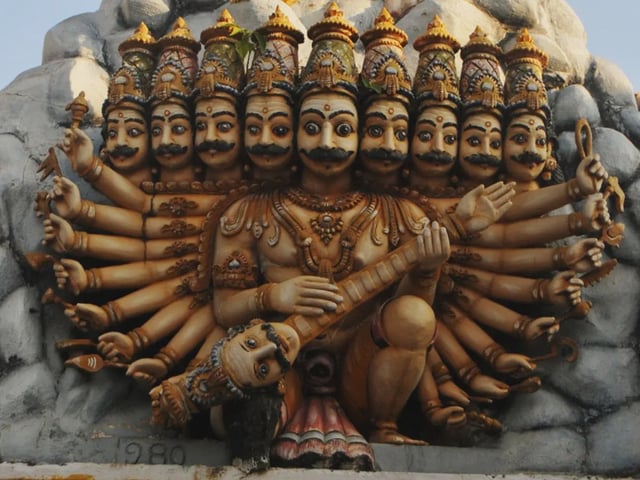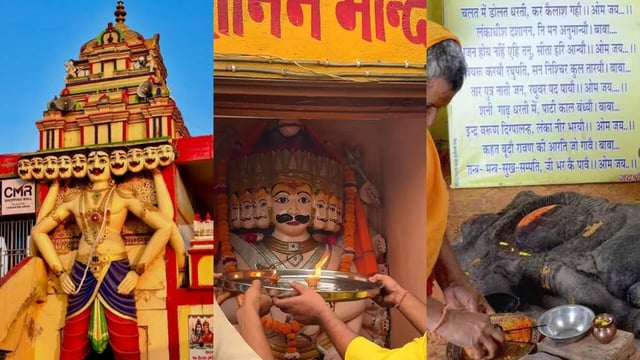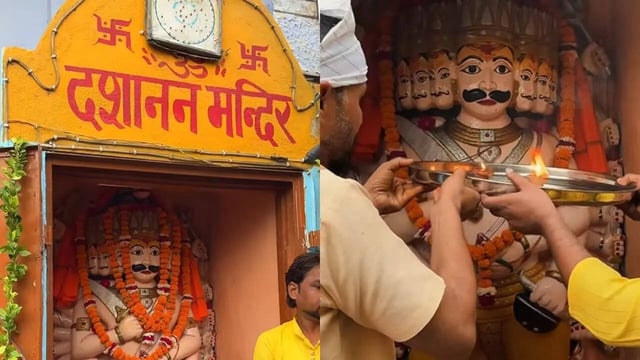Overview
- Kanpur’s 135-year-old Dashanan Mandir will open only on Dussehra for a special morning aarti, with its five-foot idol otherwise kept veiled all year.
- Residents of Bisrakh near Greater Noida observe yajnas during Navratri, regard Ravan as Maha Brahman, and avoid effigy burning viewed locally as Brahm Hatya.
- Ravangram in Madhya Pradesh maintains a 10-foot reclining statue, claims ancestral ties to Ravan, and symbolically invites him first to village weddings.
- Mandsaur treats Ravan as a respected son-in-law due to traditions linking the area to Mandodari, with prayers offered and tall statues maintained during Dussehra.
- Kakinada in Andhra Pradesh honors Ravan for his devotion to Shiva at the Kumbhabhishekam Temple, believed locally to stand at a site chosen by him.


